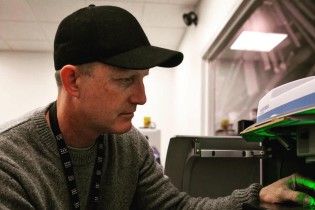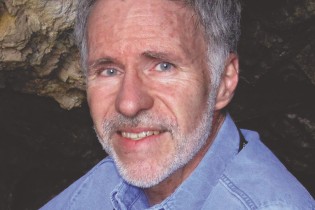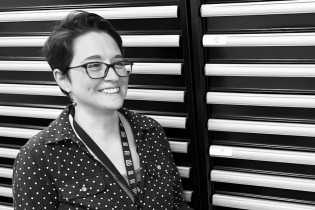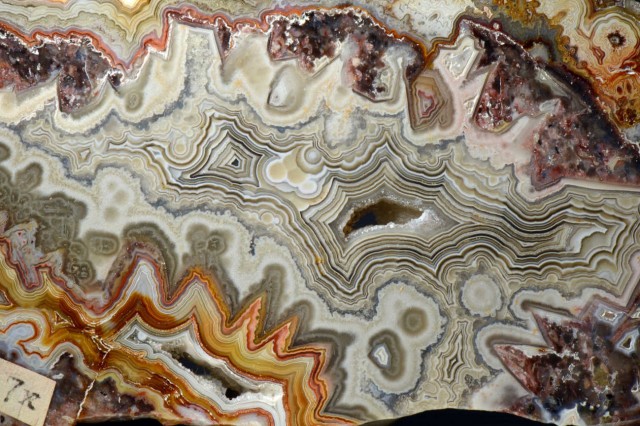Mineral Sciences
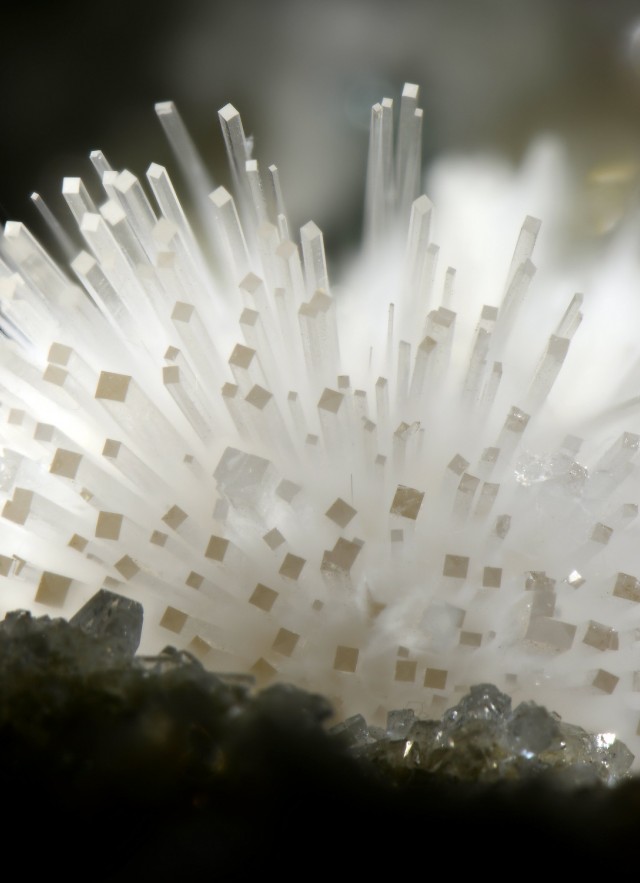
The Mineral Sciences collections include minerals, rocks, meteorites, gems, and related synthetic materials. The mineral collection is world-wide in scope and boasts particular strengths in minerals from California, native gold, and gem crystals. The collections are being actively augmented principally through purchases and donations.
There are approximately 150,000 specimens, including more than 140,000 minerals, nearly 100,000 of which are micromounts, 3,000 rocks, 3,000 gems, and 50 meteorites. Approximately half of all known mineral species are represented in the collections.
research
The collection supports research in a variety of areas in materials science, climate science, pharmaceuticals, environmental remediation, petroleum science, ore deposits, exobiology, bio-mineralogy, and general mineralogical research.
Our research laboratory has been on public display since 2017. All experimental stations, collections, and equipment are on view and scientific content is communicated to the visitor by signage, gallery interpreter engagement, video, and social media to our more than 800,000 visitors a year.
The lab includes the following analytical equipment:
- Raman Microscopy
- X-ray Fluorescence Microscope
- X-ray Diffraction - Single Crystal
- X-ray Diffraction - Powder
- Laser-Induced Breakdown Spectroscopy
Search our Collections
Search the collection by name, variety, or locality.
Our Staff
Affiliates
Maru GarciaArtist / BioTech | Maru García is a Mexican transdisciplinary artist and researcher working across art + science + environment. Her methodology combines laboratory and fieldwork tools from her background in plant chemistry and the chemical industry. Her use of media includes research, installations, performance, sculpture, and video, usually with the presence of some kind of organic matter to help understand the biological processes occurring in complex systems. Her areas of interest are explorations on biosystems, interspecies relationships, and the capacity of living organisms (including humans) to act as remediators in contaminated sites. Her work highlights the importance of eco-aesthetics, where relationships and community are proposed as a way of building cultures of regeneration. At the same time, she questions the ways science and technology have influenced the relationship between humans within the natural world. |
Graham Coates SmithArtist / BioTech | Graham Coates Smith is an interdisciplinary artist and environmental scientist. He has contributed to projects including public art installations, gallery exhibitions, and mutual aid funds, in addition to technical scientific research support. |
Dr. Scott PerlUCLA | Scott focuses on life in hypersaline environments where evaporite mineralogy has recorded ancient and dried lake beds where life may have resided. He also studies the preservation of microbial community activity, life detection in the mineral-rock record, and further understanding how to validate biogenic signatures and markers over geologic time on other planets and moons. |
Dr. George RossmanCalTech | George is a Professor of Geology at California Technical Institute research focuses on the relationship between the spectroscopic properties of minerals and their composition and structure. Topics include trace hydrous components in minerals, metal ion site occupancy, effects of natural ionizing radiation, and X-ray amorphous materials. |
Joe Marty | Joe Marty MS 1976, is a retired Medical Technologist who worked as a Laboratory Manager in Anatomic Pathology at the University of Utah Medical Center in Salt Lake City, Utah. Joe discovered ophirite and rowleyite, both which were designated mineral of the year by the International Mineral Association. In 2008 a new zinc vanadate, martyite, was named in honor of Joe’s mineral discoveries. |
Paul Adams | Paul is an active collector of rare minerals that often leads to the discovery of new to science species. Paul has worked in the aerospace industry for 40+ years as a microscopist and spectroscopist. His research interests are centered around descriptive mineralogy of localities in southern California and Nevada. They have resulted in the description of 12 new mineral species (ferrisurite, meurigite (Na), iangreyite, krasnoite, fluorowardite, ferribushmakinite, carminite, pauladamsite, whiteite (CaMgMg), fluorwavellite, lasalite, okieite). |
Dr. Kymora Scotland, | Dr. Scotland’s focus is on performing truly translational research focused on the long-term goal of identifying therapeutic targets that will improve current stone management and thus enhance quality of life for the rising percentage of the population with stone disease. To that end, current work focuses on contributing to our understanding of kidney stone pathogenesis and the role of bacteria in this process. Her second research focus is on elucidating the mechanisms underlying ureteral peristalsis and addressing the management of the dysfunctional peristalsis and infection that often develop in nephrolithiasis patients with obstructing ureteral calculi. |
Mark TracyInstrumentation Support | Mark's experience in instrumentation is vast from a multidisciplinary career. His career included sample prep and analysis of soils, waters, and plants for various industries. Analytical experience includes gas and liquid chromatography with a variety of detectors. He's generously lending his instrumentation technician experience to the museum to help reduce instrument downtime in the lab. |
Students-in-Residence | Charlie Nicholas (undergraduate), Alexia Rojas, Tori Cassady, Kilian Ashley, Jessica Flores, Melonie Nguyen, Ava Mousavi |
Contact us
Questions about our research projects or collections?
